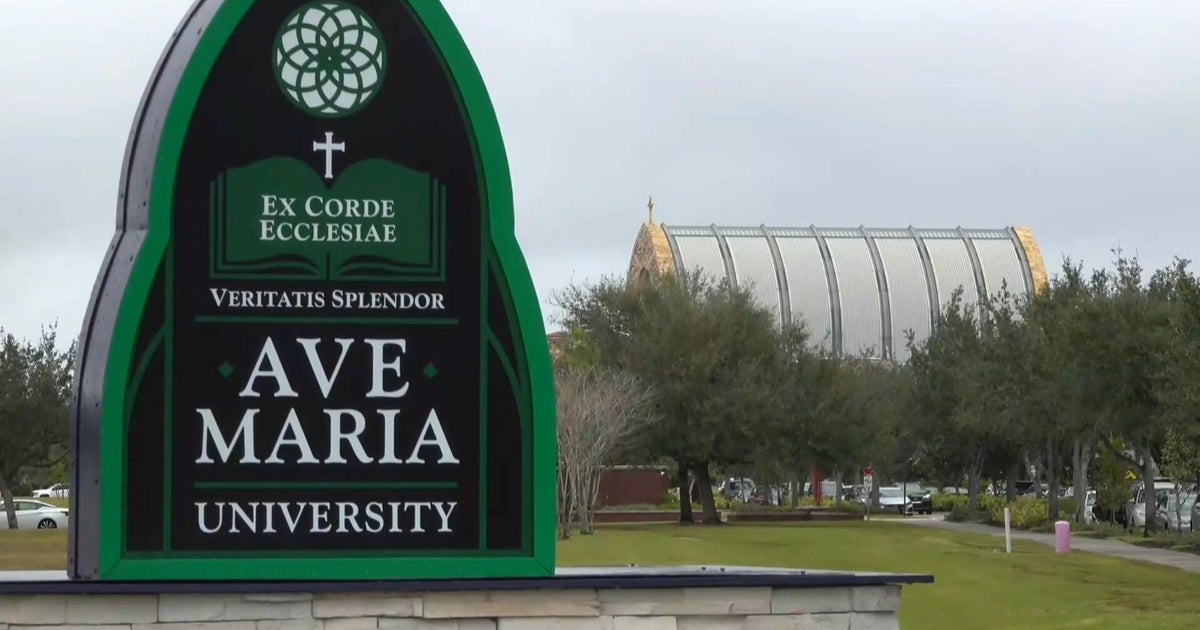Florida Legislature Passes Groundbreaking Education Bill
TALLAHASSEE, Fla. (CBSMiami) — Florida lawmakers sent Gov. Rick Scott a far-reaching education bill that undoes a much-lauded bill from three years ago.
The bill rolls back graduation standards that just three years ago were hailed as reforms that would help students compete globally.
The comprehensive bill also would set the stage for the University of Florida to take the lead in online education in the state by giving the state's most prestigious university the right to offer bachelor degrees completely online.
House Speaker Will Weatherford contended that the legislation (SB 1076) would transform the state's schools and predicted legislators would remember the unanimous vote in favor of the bill.
In 2010, legislators raised the state's graduation requirements, adding tougher courses in math such as Algebra II and science courses such as chemistry and physics. The argument at the time was that it would align high school standards to the types of skills that would be needed to attract high-wage jobs in the state.
The bill sent to Scott, however, would remove those requirements, which is a position backed by school superintendents. Instead college-bound students could opt to take tougher courses and earn a high school diploma that includes a "scholar" designation. Students would also be allowed to take career education courses or enroll in work-related internships.
The new measure would also remove requirements to pass end-of-course tests in biology and geometry in order to earn a diploma. Instead the tests would count as 30 percent of a student's final grade.
Weatherford — who championed a measure to tie teacher pay to student performance — rejected any criticism that the new bill was watering down the current standards.
He and other supporters— including Democrats — insisted that they were redesigning high school standards to give different options to students who may not be interested in pursuing a college degree.
"Whether that child wants to be a brain surgeon or a Mercedes mechanic, this takes care of them," said Rep. Elizabeth Porter, R-Lake City.
The legislation drew support from Democratic legislators, who said it was a sign that GOP colleagues were responding to criticisms that have been heaped on the state's education system in the years since then-Gov. Jeb Bush pushed through changes that emphasized how students fared on high-stakes tests such as the Florida Comprehensive Assessment Test.
"Today we're not ending the FCAT as we know it, but we're getting closer," said Rep. Alan Williams, D-Tallahassee.
The House passed the bill with a unanimous vote. The Florida Senate passed the legislation earlier this week by a 33-7 vote.
Scott has not said how he will act on the bill. A spokeswoman said Friday he would review the bill. But the legislation does include a provision that allows the state's colleges to waive a portion of tuition and fees in order to design degree programs that cost $10,000 to offer. Scott has pushed for colleges to offer the low-cost degrees as part of his effort to keep the cost of tuition down.
The measure also includes several provisions that affect Florida's public universities, including designating universities as "preeminent state research" universities.
UF, which meets the criteria, would be allowed to start an online institute in 2014 that would offer bachelor's degree online as well as a master's degree in business administration. This was a high priority for Weatherford, who said it was time that the state expanded its digital offerings to students.
The cost of the online courses could not be more than 75 percent of the tuition charged to Floridaresidents who attend school at the Gainesville campus. UF would also get $15 million in the coming year to carry out its new mission.
"You could take all of your courses from a kitchen table," said Rep. Marlene O'Toole, R-Lady Lake and chairwoman of the House Education Committee.
The new "preeminent" designation would also apply to Florida State University, which would be eligible for extra money to help it attract national known scholars to the faculty. Both UF and FSU would also be given the authority to mandate that incoming freshmen take up to 12 hours of courses that could not be bypassed by taking Advanced Placement courses in high school.
(TM and © 2013 CBS Local Media, a division of CBS Radio Inc. CBS RADIO and EYE Logo TM and © 2013 CBS Broadcasting Inc. Used under license. All Rights Reserved. This material may not be published, broadcast, rewritten, or redistributed. The Associated Press contributed to this report.)







